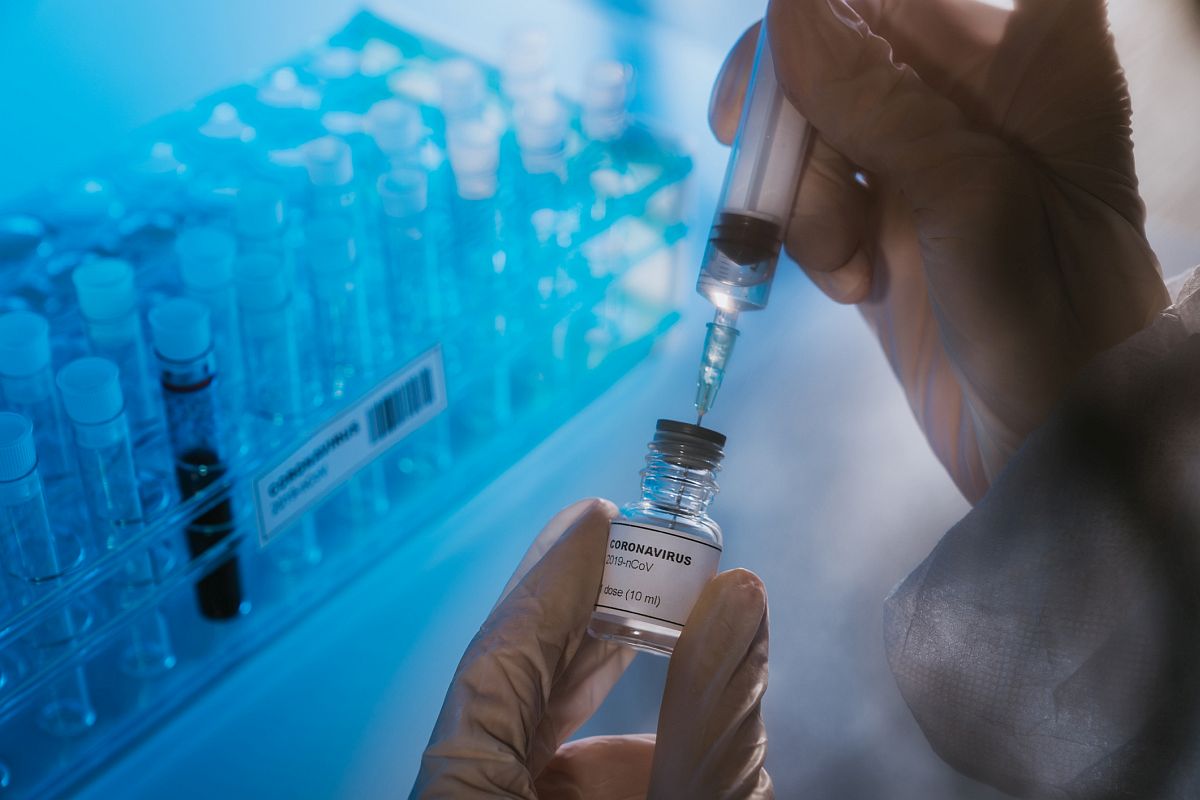Trump announces US withdrawal from World Health Organisation
Trump has long been critical of the WHO, and his administration formally withdrew from the organisation in July 2020 as the Covid-19 pandemic continued to spread.
July 20 marked an important day in the battle against Coronavirus as the first results of Oxford’s COVID-19 vaccine showed that it is safe and provokes an immune reaction in a person that lasts for almost two months.

The vaccine AZD1222 had a favourable response in the first phase of clinical trials. (Representational Photo: iStock)
Five sites across the country are ready for the third and final phase of human trials of the Oxford-AstraZeneca COVID-19 vaccine, Secretary of Department of Biotechnology (DBT) Renu Swarup said on Monday.
This is an essential step because it is necessary to have data within the country before the vaccine is administered to Indians, Swarup told PTI.
Advertisement
The Serum Institute of India (SII), the largest vaccine maker in the world, has been chosen by Oxford and its partner AstraZeneca to manufacture the vaccine once it is ready. Trials results for the first two phases were published earlier this month.
Advertisement
According to Swaroop, the DBT is part of any COVID-19 vaccine effort in India “… whether it is funding, whether it is facilitating the regulatory clearances or whether it is giving them access to different networks which exist within the country”.
“The DBT is now setting up Phase 3 clinical sites. We have already started working on them and five sites are now ready to be available for Phase 3 trials,” she said.
The Pune-based SII has, meanwhile, sought permission from the Drugs Controller General of India (DCGI) for conducting Phase 2 and 3 of human clinical trials of the potential vaccine.
The SII had last week said that as soon as the Indian regulator grants them permission, it will begin with trials for the vaccine in India and will start manufacturing the vaccine in large volumes.
The DBT secretary said that the institute is “closely working with every manufacturer and Phase 3 trial of Serum (institute) is important because if the vaccine has to be successful and it has to be given to the Indian population we need to have the data within the country.”
“For that a Phase 3 trial has been proposed. Five sites are ready. Within some more weeks, they should be ready for manufacturers to take them up for clinical trial studies,” she said.
July 20 marked an important day in the battle against Coronavirus as the first results of Oxford’s COVID-19 vaccine showed that it is safe and provokes an immune reaction in a person that lasts for almost two months.
The researchers have indicated that the vaccine may be ready by year end. The results showed that more than 91 per cent of volunteers injected produced an immune response against coronavirus which lasted for a month or more. The immune responses remained strong for at least 56 days.
Oxford University’s vaccine, called AZD1222, is being manufactured by pharmaceutical major AstraZeneca and the UK government has ordered 100 million doses ahead of time.
As per the results, the vaccine boosted T cell and antibody immunity. The vaccine produced strong responses on both accounts, the study found, with T cell immunity peaking after two weeks and then dropping slightly by day 56.
Antibody immunity, on the other hand, peaked after four weeks and remained high by day 56, indicating that it may well last for even longer.
The vaccine AZD1222 had a favourable response in the first phase of clinical trials. It did not prompt any serious side effects and elicited antibody and T-cell immune responses, according to trial results published in The Lancet medical journal.
During the study, participants who received the vaccine had detectable neutralising antibodies, which have been suggested by researchers as important for protection.
These responses were strongest after a booster dose, with 100 per cent of the participants’ blood having neutralising activity against the coronavirus, showed the results.
The next step in studying the vaccine is to confirm that it can effectively protect against the SARS-CoV-2 infection.
The University of Oxford is working with the UK-based global biopharmaceutical company AstraZeneca for further development, large-scale manufacture and potential distribution of the COVID-19 vaccine, with plans for clinical development and production of the Oxford vaccine progressing globally.
Oxford and AstraZeneca are collaborating with clinical partners around the world as part of a global clinical programme to trial the Oxford vaccine.
The global programme is made up of a Phase III trial in the US enrolling 30,000 patients, a paediatric study, as well as Phase III trials in low-to-middle income countries including Brazil and South Africa which are already underway.
(With agency inputs)
Advertisement